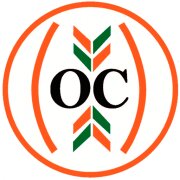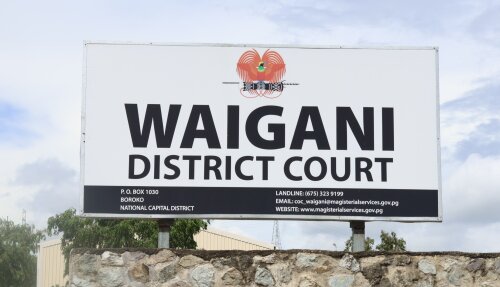Best Juvenile Law Lawyers in Papua New Guinea
Share your needs with us, get contacted by law firms.
Free. Takes 2 min.
Or refine your search by selecting a city:
List of the best lawyers in Papua New Guinea
About Juvenile Law in Papua New Guinea
Juvenile Law in Papua New Guinea focuses on legal matters involving individuals under the age of 18 who come into conflict with the law. The primary goal of Juvenile Law is to protect the rights of minors, provide age-appropriate treatment, and ensure that any interventions made are in their best interests. It emphasizes rehabilitation over punishment and recognizes the unique needs of young offenders. Various laws and policies have been established to handle juvenile cases in a manner that is both child-centered and respectful of human dignity.
Why You May Need a Lawyer
There are numerous situations where legal help may be necessary under Juvenile Law in Papua New Guinea. These include instances where a minor is accused of committing an offense, cases involving child abuse or neglect, and situations where a minor’s rights need to be defended in court. Additionally, legal assistance may be required to navigate the complex processes surrounding child custody, adoption, or guardianship. A lawyer specializing in Juvenile Law can provide crucial guidance, represent the interests of minors, and ensure fair treatment under the law.
Local Laws Overview
Juvenile Law in Papua New Guinea is guided by the Lukautim Pikinini Act and other related statutes. Key aspects of the law include the establishment of the Juvenile Court, which is a special division tasked with handling matters involving young offenders. The laws stress the importance of rehabilitation, providing for detention only as a last resort. They also highlight the need for parental involvement and community-based solutions. Protective measures are in place to shield juveniles from harmful environments and to guarantee their rights during legal proceedings.
Frequently Asked Questions
What is the age of criminal responsibility in Papua New Guinea?
The age of criminal responsibility in Papua New Guinea is 10 years. This means that children under the age of 10 cannot be charged with a criminal offense.
What kind of offenses can be heard in the Juvenile Court?
The Juvenile Court can hear a variety of offenses, including petty theft, assault, and drug-related offenses, among others. However, more serious crimes may be referred to higher courts.
Can juveniles be sentenced to imprisonment?
Yes, but imprisonment is used only as a last resort. The focus is primarily on rehabilitation and alternative solutions such as counseling and community service.
Are parents involved in the juvenile legal process?
Yes, parents or guardians are typically involved in the process to provide support and ensure the child’s best interests are addressed.
What rights do juveniles have when they are arrested?
Juveniles have the right to remain silent, the right to legal representation, and the right to have a guardian present during questioning.
How are cases of child abuse handled?
Cases of child abuse are handled with the utmost sensitivity. The focus is on protecting the child, providing necessary medical or psychological assistance, and taking legal actions against offenders.
Do juveniles have a right to a trial by jury?
No, juvenile cases are typically adjudicated by a magistrate without a jury to ensure privacy and a focus on rehabilitation.
What is the process for juvenile adoption in Papua New Guinea?
The adoption process involves a thorough vetting of prospective parents, ensuring suitability for child welfare, and obtaining necessary legal approvals.
Can a minor make a legal complaint independently?
While they can express their desire to make a complaint, typically a guardian or legal representative needs to act on their behalf in legal matters.
What happens if a juvenile reoffends?
If a juvenile reoffends, the court may review the effectiveness of previous measures and consider alternative rehabilitation options or more stringent actions.
Additional Resources
Individuals seeking advice on Juvenile Law in Papua New Guinea can consult the following resources: The Public Solicitor's Office offers free legal assistance, particularly to those who can't afford a lawyer. Non-governmental organizations such as ChildFund Papua New Guinea provide resources and support for children in legal matters. Furthermore, the Department of Justice and Attorney General offers guidelines and policies related to juvenile justice matters.
Next Steps
If you need legal assistance in Juvenile Law, the first step is to consult with a lawyer specializing in this field. You can contact the Public Solicitor's Office or seek recommendations from local community leaders for reputable law firms. It's also important to gather any relevant documents and information related to the case. Having a clear understanding of the situation will help your lawyer provide the most effective legal advice and representation.
Lawzana helps you find the best lawyers and law firms in Papua New Guinea through a curated and pre-screened list of qualified legal professionals. Our platform offers rankings and detailed profiles of attorneys and law firms, allowing you to compare based on practice areas, including Juvenile Law, experience, and client feedback.
Each profile includes a description of the firm's areas of practice, client reviews, team members and partners, year of establishment, spoken languages, office locations, contact information, social media presence, and any published articles or resources. Most firms on our platform speak English and are experienced in both local and international legal matters.
Get a quote from top-rated law firms in Papua New Guinea — quickly, securely, and without unnecessary hassle.
Disclaimer:
The information provided on this page is for general informational purposes only and does not constitute legal advice. While we strive to ensure the accuracy and relevance of the content, legal information may change over time, and interpretations of the law can vary. You should always consult with a qualified legal professional for advice specific to your situation.
We disclaim all liability for actions taken or not taken based on the content of this page. If you believe any information is incorrect or outdated, please contact us, and we will review and update it where appropriate.
Browse juvenile law law firms by city in Papua New Guinea
Refine your search by selecting a city.












